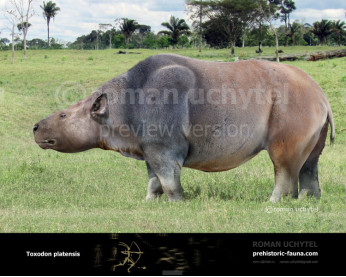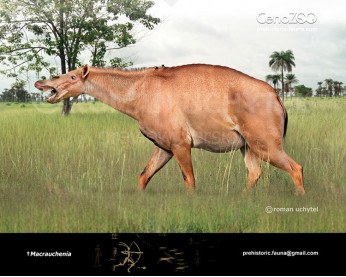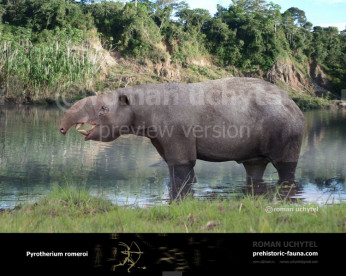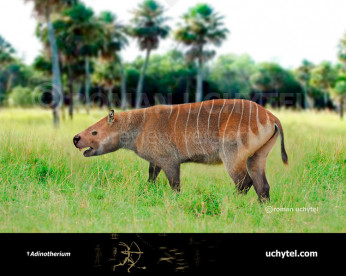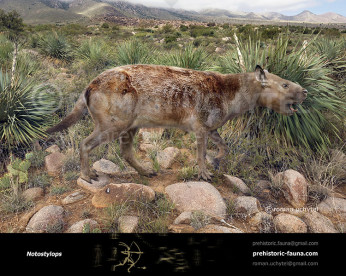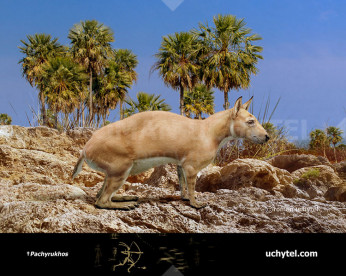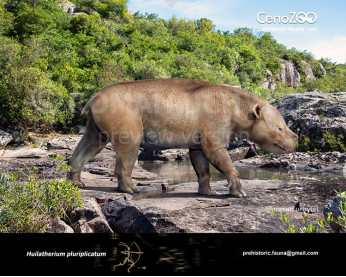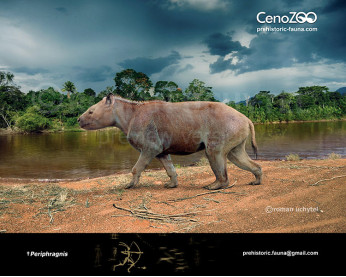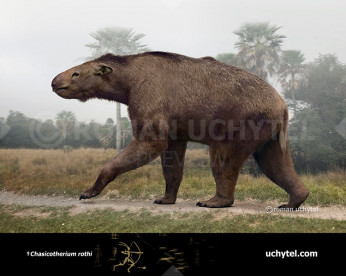Homalodotherium
107107Homalodotherium (Homalodotherium Huxley, 1870)
Order: Notoungulata
Family: Homalodotheriidae
Time period: Early - late Miocene of South America
Size: 2,2 m in length, 140 cm in height, 250-350 kg of weight
Typical representative: Homalodotherium cunninghami Huxley, 1870
Homalodotherium cunninghami - one of the most striking representatives of the South American fauna Miocene epoch. Reached 2.2 m in length, taking into account the growth of the tail and up to 120 cm, and weighs about 300 kg. The skull was quite impressive - up to 41 cm in length.
As members of the order Notoungulata, the so-called southern ungulates, they surprisingly looked like Chalicotherium, who are members of the order perissodactyls (Perissodactyla) and are not to Homalotheriidae in close relatives.
In the Miocene South American continent was not connected to North America by the Isthmus of Panama, and the local fauna, while in isolation, evolved differently. Superficial resemblance of Homalodotherium to Chalicotherium dictated by a similar ecological niche, which is occupied by both not related to each other animals groups, and is the result of convergent evolution.
Homalodotherium (Homalodotherium Huxley, 1870)
Order: Notoungulata
Family: Homalodotheriidae
Time period: Early - late Miocene of South America
Size: 2,2 m in length, 140 cm in height, 250-350 kg of weight
Typical representative: Homalodotherium cunninghami Huxley, 1870
Homalodotherium cunninghami - one of the most striking representatives of the South American fauna Miocene epoch. Reached 2.2 m in length, taking into account the growth of the tail and up to 120 cm, and weighs about 300 kg. The skull was quite impressive - up to 41 cm in length.
As members of the order Notoungulata, the so-called southern ungulates, they surprisingly looked like Chalicotherium, who are members of the order perissodactyls (Perissodactyla) and are not to Homalotheriidae in close relatives.
In the Miocene South American continent was not connected to North America by the Isthmus of Panama, and the local fauna, while in isolation, evolved differently. Superficial resemblance of Homalodotherium to Chalicotherium dictated by a similar ecological niche, which is occupied by both not related to each other animals groups, and is the result of convergent evolution.

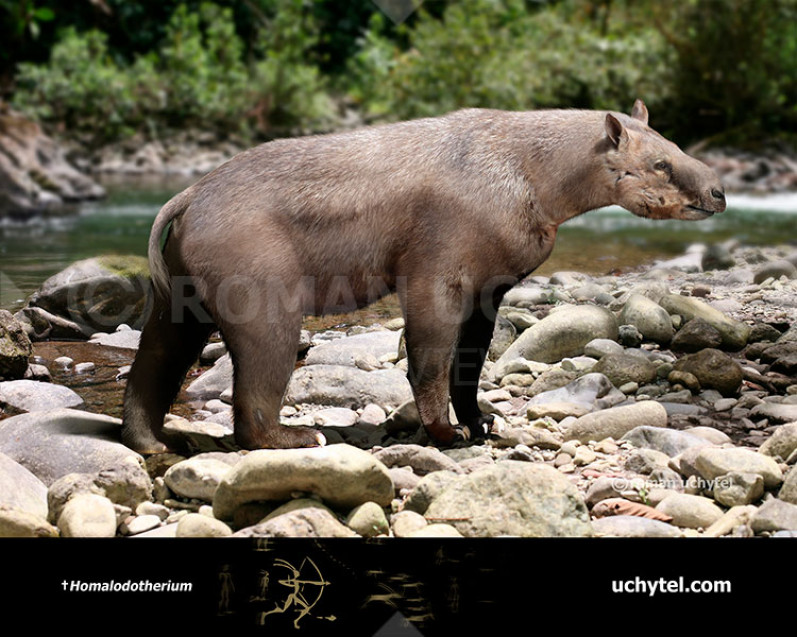
-797x638.jpg)
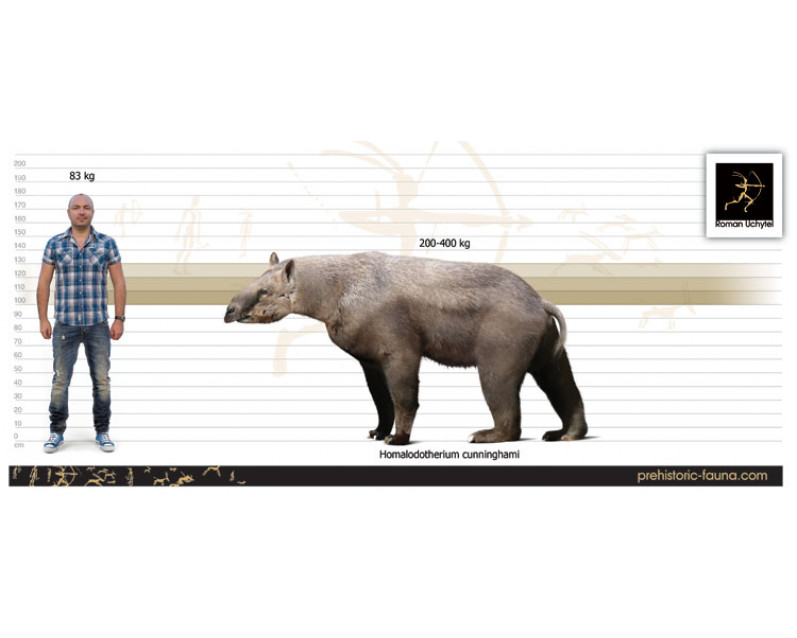

-70x56.jpg)

